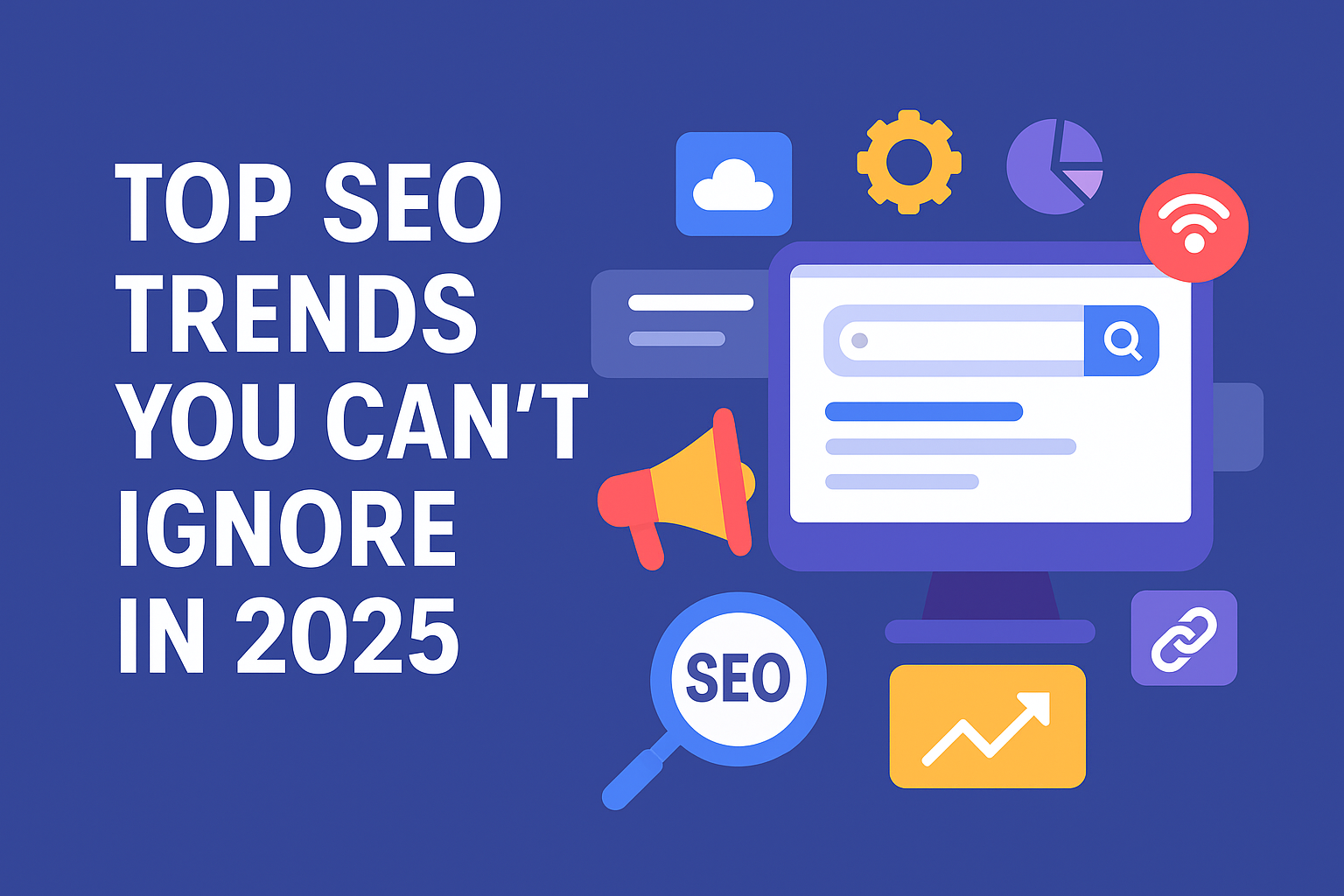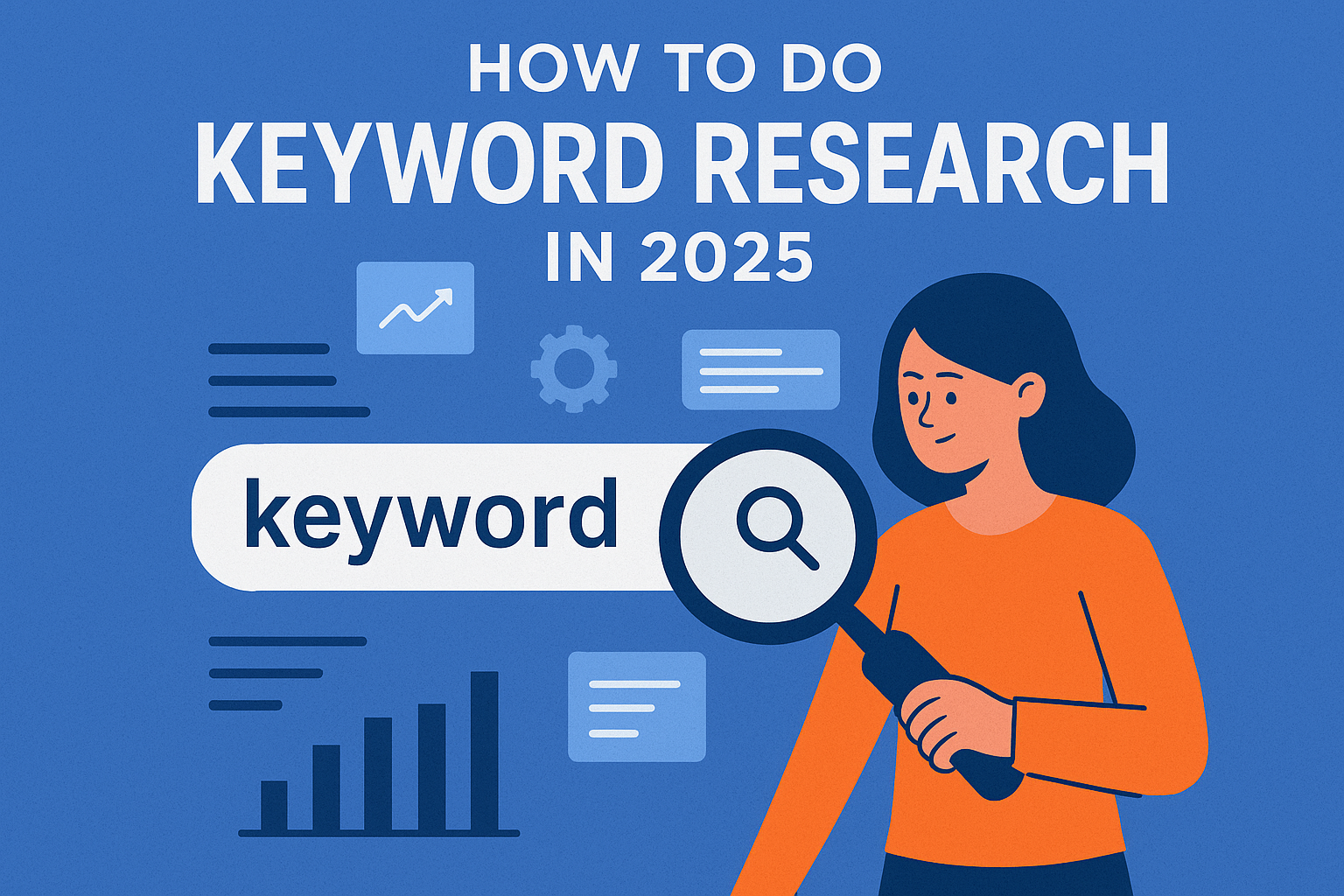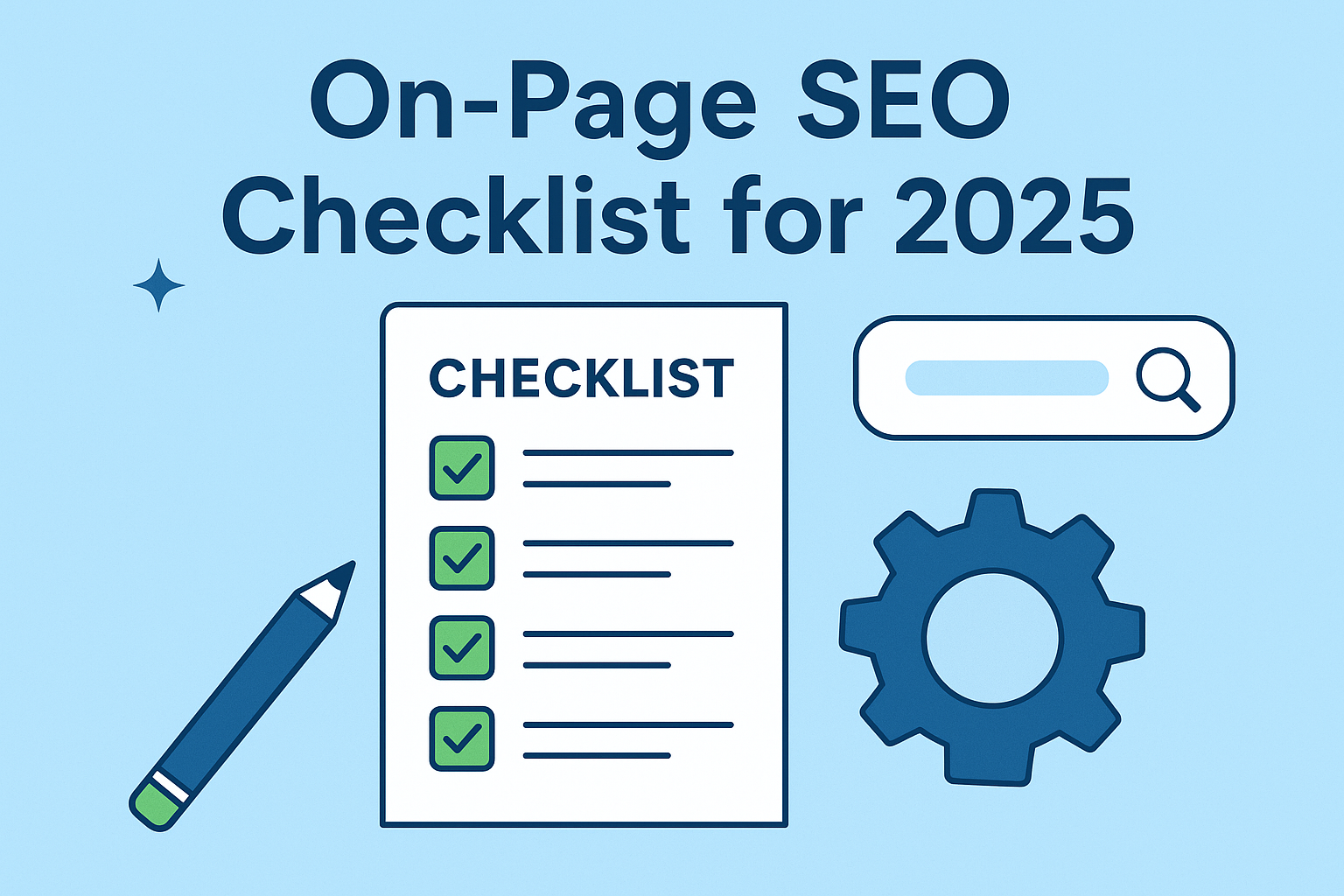Introduction
SEO has always been in a state of evolution, but 2025 feels different. We’re in the middle of a digital transformation where AI, automation, and user intent are rewriting the rules of search. Google is no longer just matching keywords with pages; it’s predicting intent, analyzing content quality, and rewarding trustworthy sources.
For businesses, this means SEO in 2025 is less about “gaming the system” and more about creating valuable, human-centered content supported by smart strategies. If you’re still relying on 2020 tactics, you’re already behind. From AI-driven search to video optimization and sustainable link-building, these are the SEO trends you simply cannot ignore.
The Rise of AI-Driven Search
AI is at the heart of Google’s ranking algorithms in 2025. With advancements like Search Generative Experience (SGE), search results are no longer just ten blue links — they’re AI-generated summaries, product suggestions, and personalized answers.
How Google’s AI Models Impact Rankings
Google’s AI models analyze content with a deeper understanding of context, tone, and accuracy. This means keyword stuffing or thin content will be flagged quickly. Instead, Google rewards content that demonstrates E-E-A-T (Experience, Expertise, Authoritativeness, and Trustworthiness).
A study from Search Engine Journal found that pages optimized for semantic relevance — not just exact match keywords — perform 40% better in AI-powered SERPs.
AI Tools for Smarter Keyword Research
In 2025, keyword research has shifted from simple volume metrics to intent-based keyword clusters. Tools like SEMrush, Ahrefs, and Surfer SEO now use machine learning to suggest groups of related keywords, content gaps, and even predict ranking difficulty.
👉 If you’re building a strategy, check out our guide on link insertion — it pairs perfectly with AI-driven keyword targeting.
Voice Search and Conversational Queries
Voice search isn’t just a buzzword anymore — it’s mainstream. With smart speakers and mobile assistants dominating, conversational queries now account for nearly 30% of all searches (according to HubSpot).
Optimizing for Natural Language
People don’t say “best pizza NYC” into a smart speaker. They say, “What’s the best pizza place near me right now?” Optimizing for voice means creating conversational, question-based content and including structured data that answers these queries.
Local SEO and “Near Me” Searches
Local intent continues to grow. Businesses that optimize Google Business Profiles, gather customer reviews, and use location-based keywords dominate voice-driven searches. If your SEO strategy ignores local, you’re leaving leads on the table.
Visual and Video SEO
Search engines now prioritize visual content. Google Lens, TikTok, and YouTube searches are exploding — making video and image optimization essential.
Image Recognition in Search Engines
Google’s AI can now “see” inside images and interpret them. That means alt-text alone isn’t enough — contextual relevance between the image, file names, captions, and surrounding text matters more than ever.
Video Content as a Ranking Factor
Video results appear in over 65% of SERPs (according to Moz). Platforms like YouTube and TikTok are becoming secondary search engines. To compete, businesses must create short-form videos with SEO-rich titles, transcripts, and captions.
User Experience Signals as Ranking Factors
SEO in 2025 is not just about what your content says, but how users experience it.
Core Web Vitals in 2025
Google continues to refine Core Web Vitals — metrics like loading speed, interactivity, and visual stability. A slow or clunky website can tank rankings even if your content is top-notch.
Mobile-First and Multiplatform Optimization
More than 70% of searches happen on mobile. That means responsive design, mobile-friendly navigation, and even voice-enabled browsing are mandatory for staying competitive.
Content Authority and E-E-A-T
Google wants experts, not content mills. Topical authority — becoming the go-to source for one subject — is key to ranking in 2025.
Why Topical Authority Matters
Publishing one-off blogs doesn’t cut it. Instead, businesses must create content clusters: one pillar page supported by multiple in-depth subtopics.
Building Trust Through Quality Backlinks
Authority also depends on your backlink profile. Backlinks from trusted domains like Forbes, HubSpot, or industry-specific sites are powerful ranking signals. You can explore our guest posting services to build a natural, authoritative backlink portfolio.
Zero-Click Searches and Featured Snippets
Zero-click searches (where users get answers directly on the SERP) are here to stay. By 2025, over 50% of searches won’t lead to a click.
Strategies to Appear in Snippets
- Use FAQ schema
- Provide direct, concise answers
- Optimize headings with question formats
Adapting to Reduced Click-Through Rates
Even if clicks decrease, appearing in snippets boosts brand visibility and authority — which can still drive long-term traffic.
Sustainable Link-Building Strategies
Backlinks remain critical, but shady tactics no longer work. Google’s algorithms are smarter at detecting manipulative link schemes.
Guest Posting vs. Link Insertion
Both methods work — but in 2025, quality matters more than quantity. Guest posting builds authority with long-form content, while link insertion allows you to add contextually relevant links into already-ranking pages. You can compare both options in our best deals section.
Balancing Paid and Organic Backlinks
Investing in outreach is fine, but organic links driven by share-worthy content should remain your foundation.
The Future of SEO Automation
Automation is the backbone of modern SEO. AI tools now handle everything from keyword clustering to technical audits.
Marketing Automation Tools in SEO
Platforms like HubSpot and SEMrush integrate SEO automation with email campaigns, CRM, and analytics, ensuring a cohesive growth strategy.
AI Content Optimization
AI can suggest better headlines, optimize metadata, and even analyze SERPs in real time. Still, human oversight is essential to keep content authentic and aligned with brand voice.
FAQs
1. Is SEO still relevant in 2025?
Yes, more than ever. But it’s less about hacks and more about quality, authority, and user intent.
2. How does AI impact SEO?
AI powers search algorithms and tools, making SEO strategies more intent-driven and less keyword-focused.
3. What’s the biggest SEO mistake in 2025?
Chasing keyword volume instead of search intent.
4. Do backlinks still matter?
Yes, but only quality backlinks from relevant, authoritative sites will help.
5. How do I rank for voice search?
Focus on conversational keywords, local SEO, and structured data.
6. Should small businesses invest in SEO automation?
Absolutely. Automation saves time and ensures consistency in execution.
7. What’s the future of SEO beyond 2025?
SEO will continue blending with AI, UX, and multimedia content optimization.
Final Words
SEO in 2025 is no longer about shortcuts. It’s about building authority, optimizing for user experience, and embracing AI-driven tools. From voice search to automation, every trend points toward a more personalized and intent-focused future.
If you’re ready to future-proof your strategy, explore our tailored services:
- Guest Posting
- Link Insertion
- Best Deals
Or simply contact us to get started.



